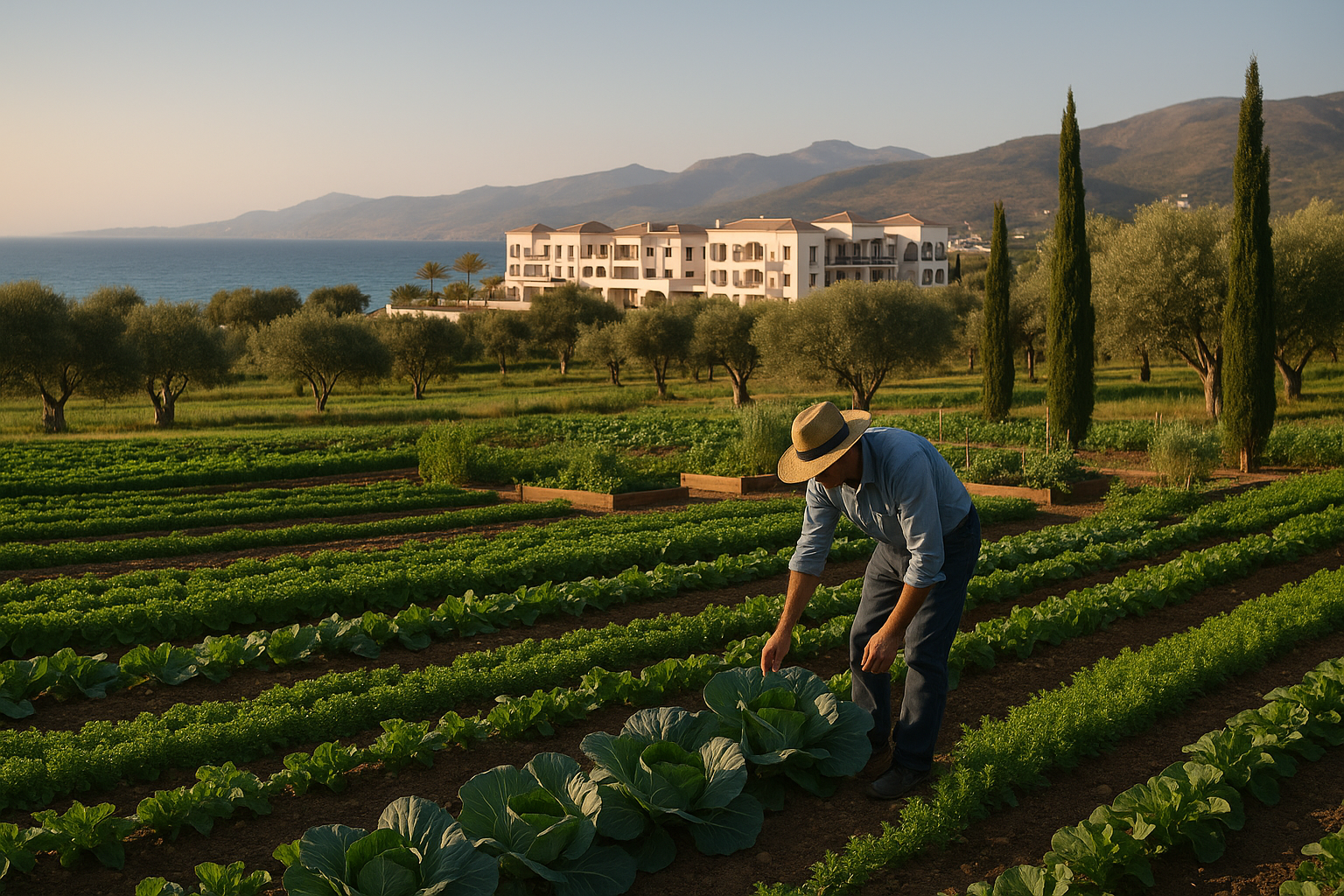How agritourism is emerging as public health strategy in sustainable development
The research addresses a critical knowledge gap by examining the operationalization of sustainability within tourism enterprises as a mechanism to improve public health. Through a systematic review of literature and a detailed case study of Phaea Resorts in Crete, the authors provide empirical evidence of how private hospitality entities can integrate health-aligned agricultural strategies.

New research breaks ground on how the private sector, through tourism and agriculture, can play a decisive role in advancing global health and sustainability goals. The study published in the journal Sustainability investigates the role of hospitality enterprises in promoting public health through environmentally responsible agricultural practices.
Titled “Enhancing Public Health and SDG 3 Through Sustainable Agriculture and Tourism” (2025, Vol. 17, Article 6253), the study focuses on a tourism enterprise in Crete and examines how sustainability-oriented business practices can tangibly advance United Nations Sustainable Development Goal 3 (SDG 3): ensuring healthy lives and promoting well-being for all at all ages.
How can private sector tourism enterprises contribute to public health?
The research addresses a critical knowledge gap by examining the operationalization of sustainability within tourism enterprises as a mechanism to improve public health. Through a systematic review of literature and a detailed case study of Phaea Resorts in Crete, the authors provide empirical evidence of how private hospitality entities can integrate health-aligned agricultural strategies.
The review identified 32 studies emphasizing the public health risks of pesticide use and the benefits of sustainable agriculture, such as improved biodiversity and food quality. However, none examined how private-sector actors in the hospitality industry directly reduce pesticide use while aligning with SDG 3, underscoring a lack of real-world models that connect hotel operations with health promotion.
Addressing this research gap, the case study of Phaea Resorts illustrates how a for-profit tourism enterprise has adopted an integrated sustainability framework to mitigate environmental risks, foster biodiversity, and support local food systems. Through pesticide-free farming, organic landscaping, and pollinator conservation, the resort not only enhances the ecological health of its surroundings but also minimizes the chemical exposure of guests, staff, and the broader community.
By engaging its workforce, many of whom are local farmers, the resort has facilitated knowledge transfer and hands-on implementation of sustainable practices. These staff members receive agricultural training and resources to shift away from synthetic inputs, creating a dual benefit of economic empowerment and health protection. These efforts exemplify a replicable model where private businesses can simultaneously achieve operational goals and contribute to long-term public health outcomes.
What strategies enable effective integration of health and environmental goals?
The study identifies three core initiatives at Phaea Resorts that function as levers of systemic sustainability. The first, Phaea Farmers, promotes pesticide-free agriculture and local sourcing by empowering employees with agronomic support and land access. This initiative boosts the quality and nutritional value of the produce consumed within the resorts while fostering farmer resilience and community engagement.
The second strategy, Sustainable Landscape Management, eliminates synthetic herbicides and fertilizers in favor of composting, xeriscaping, and edible landscaping. The resort’s open-air organic gardens, featuring endemic fruits, vegetables, and herbs, play a central role in both culinary and educational experiences. These gardens reinforce soil and water health and serve as biodiversity corridors that also act as informal educational spaces for guests.
The third key component, Plan Bee, focuses on pollinator conservation through partnerships with local beekeepers. By hosting beehives and supporting sustainable apiculture, the resort enhances ecosystem services such as pollination while contributing to regional honey production and biodiversity.
Together, these initiatives align with internationally endorsed health frameworks like One Health and Health in All Policies, demonstrating how tourism can evolve from a carbon-intensive industry to a platform for environmental stewardship and health promotion. The case also highlights the importance of measurable indicators such as pesticide elimination rates, food output, pollinator activity, and guest participation to validate impact and ensure transparency.
Regardless of the challenges, including initial resistance from traditional farming stakeholders and the lack of baseline data before 2019, the resort’s multi-pronged approach has shown significant progress in aligning with SDG 3. The absence of synthetic chemicals, enriched food offerings, and restored local ecology all serve as tangible outcomes of these initiatives.
Can the Crete model be scaled to global contexts?
While the study is limited to Crete, it raises broader implications for policy and replication. The authors emphasize that for such models to be effectively scaled, enabling regulatory frameworks is essential. Tax incentives, organic certification support, and sustainability-linked funding mechanisms can accelerate adoption among other tourism operators.
Moreover, cross-sectoral collaboration is vital. The research urges cooperation between private businesses, local authorities, academia, and civil society to build technical capacity, share best practices, and engage communities. By embedding sustainability into core business models, rather than treating it as an auxiliary CSR effort, enterprises can drive systemic change.
However, the authors caution that generalizability is limited by context-specific factors, including local agroclimatic conditions, market dynamics, and governance structures. Furthermore, the absence of direct health outcome measurements, such as biomonitoring or epidemiological tracking, presents a limitation to conclusively proving causal links between practices and health gains.
The study calls for more comparative case research across different regions and industries to validate the mechanisms through which private sector tourism can contribute to public health.
- FIRST PUBLISHED IN:
- Devdiscourse










